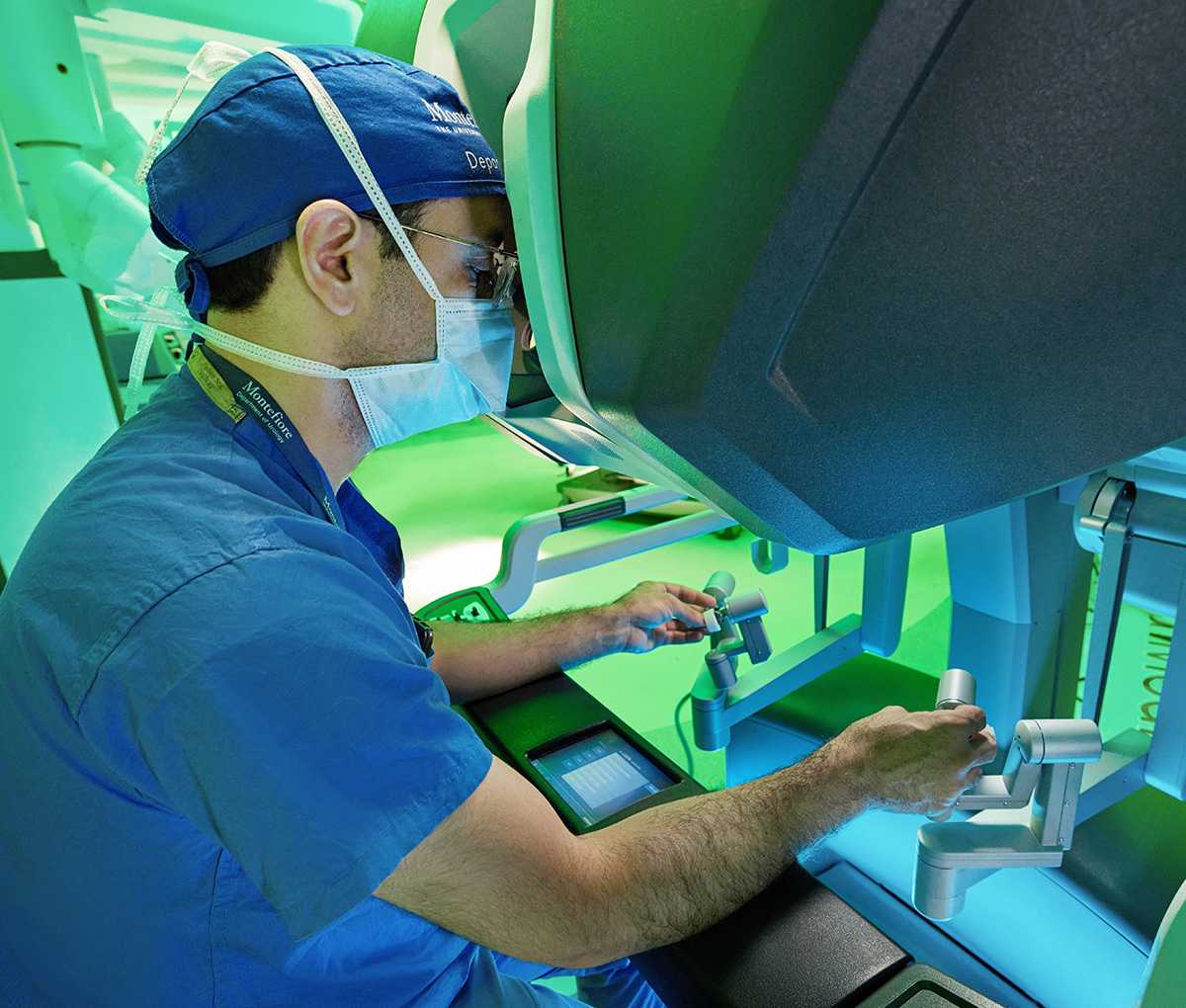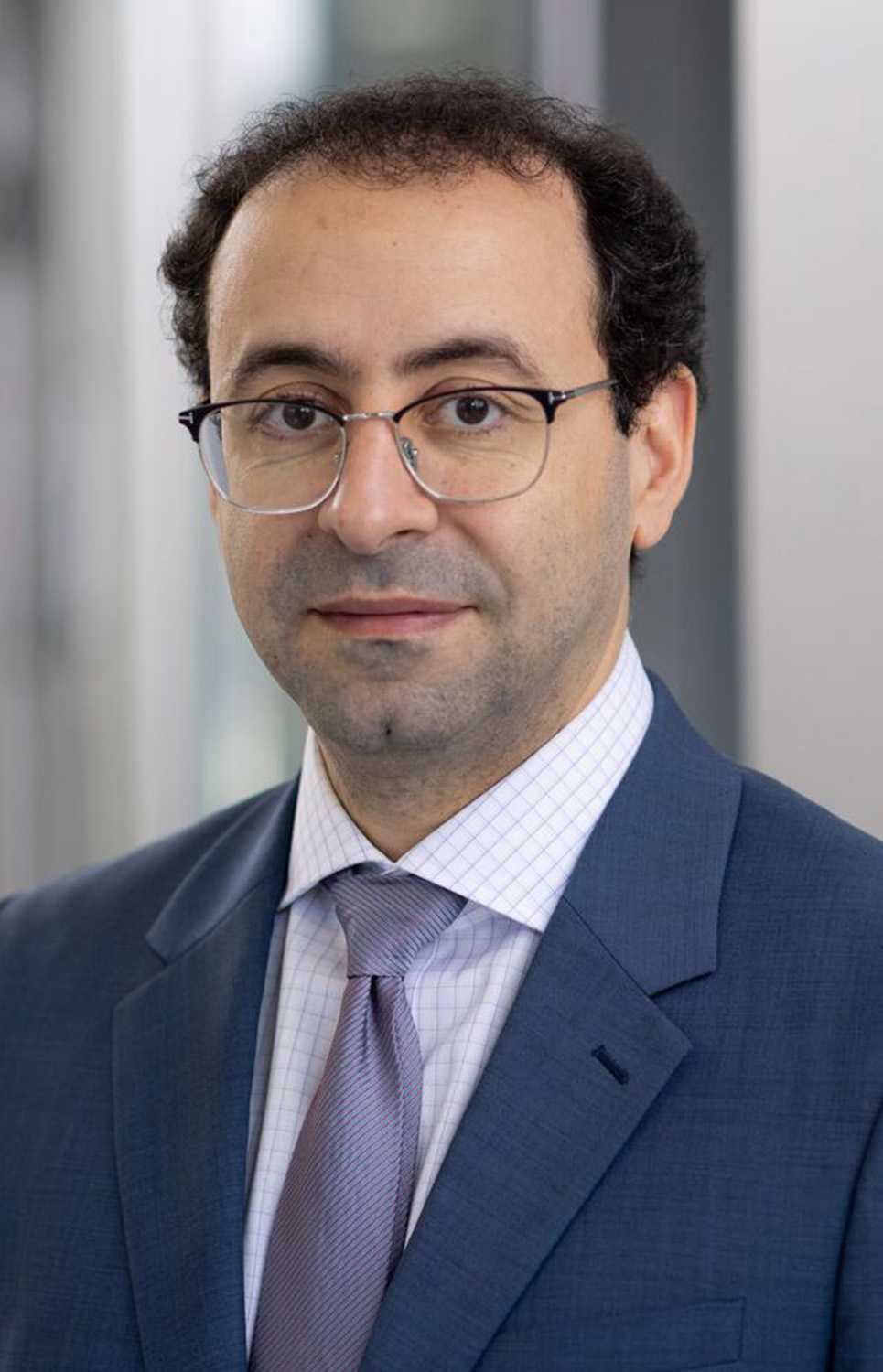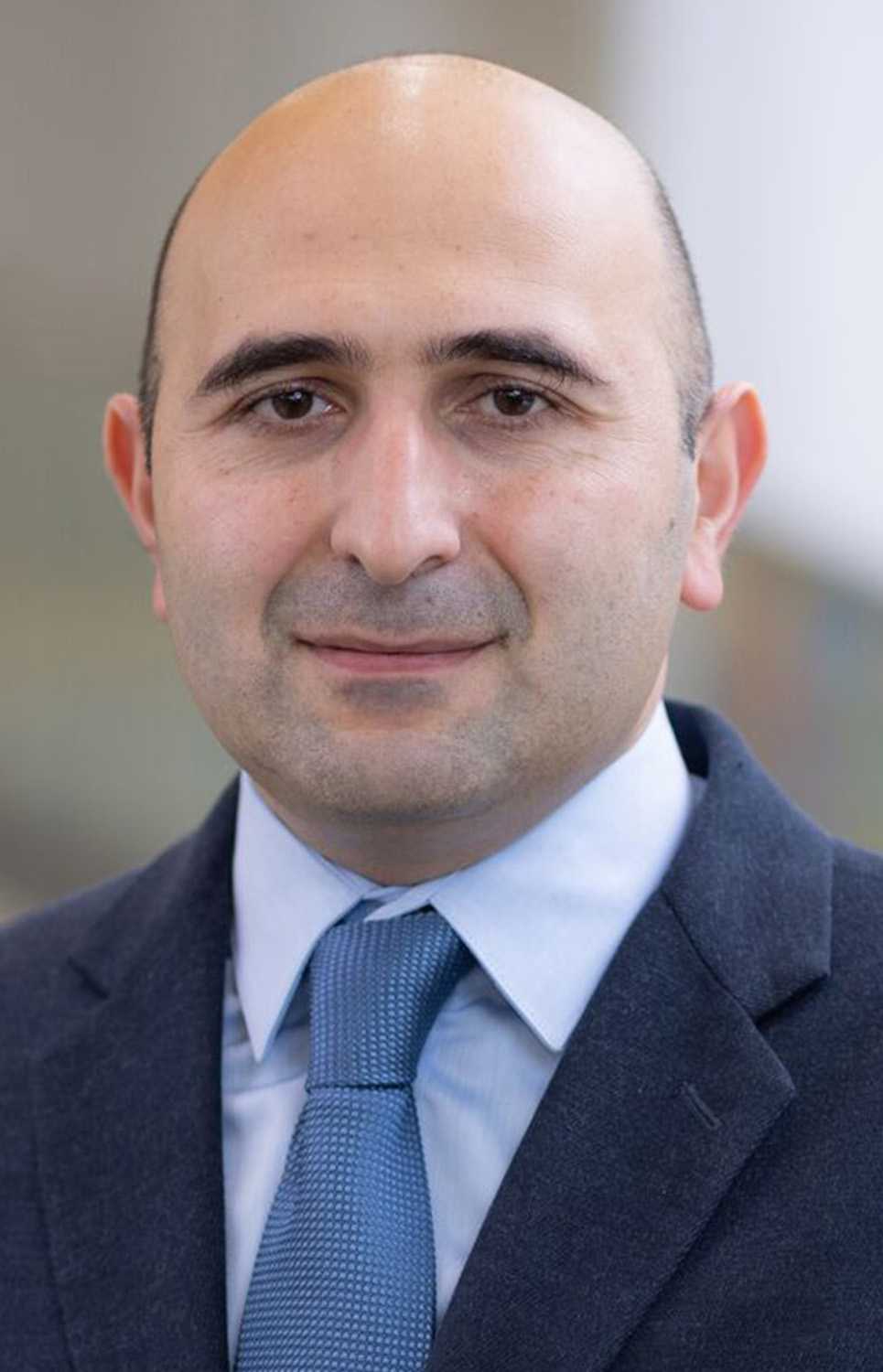HIGHLIGHTS
Montefiore Einstein Urologic Surgeons Expand Patient Access to Complex, Fully Robotic Procedures
As robotic surgery continues to expand across Montefiore Einstein, our urologic surgical teams recently performed their first ever robotic bladder augmentation and Mitrofanoff channel creation and robotic radical nephrectomy with inferior vena cava (IVC) thrombectomy surgeries. It was the first time either surgery—one to correct a congenital bladder defect and one to remove a large, advanced kidney tumor—was performed at Montefiore Einstein. With these cases, Montefiore Einstein joins other prominent medical centers offering these robotic surgeries as treatment options, giving patients in our communities access to these advancements in urology care.
Using this technology is a less invasive approach with a host of potential benefits, including smaller incisions, less bleeding, less risk of infection, shorter hospital stays and faster recovery.
These procedures were the result of collaborative partnerships between the Department of Urology, Children’s Hospital at Montefiore Einstein and the Center for Transplantation.
Ahmed A. Aboumohamed, MD, Director, Robotic and Minimally Invasive Urologic Surgery, Montefiore Einstein, and Associate Professor, Urology, Albert Einstein College of Medicine, said of the successful operations. “We are all excited about how the open approach can be translated, with some proposed tweaks and special techniques, into a minimally invasive approach with less risk.”
Ahmed A. Aboumohamed, MD
Paving the Way to a Lifesaving Transplant
One of the patients was a 16-year-old with kidney failure in need of a kidney transplant. During his evaluation, the transplant team determined that the patient needed surgery to correct a congenital defect and increase his bladder capacity in order for him to be a good transplant candidate.
Matthew. R. Danzig, MD
Dr. Aboumohamed and Matthew R. Danzig, MD, Attending Physician, Pediatric Urology, Children’s Hospital at Montefiore Einstein, and Assistant Professor, Urology, Albert Einstein College of Medicine, performed robotic bladder augmentation and Mitrofanoff channel creation, a complex surgery with two key parts. Working at the surgeon’s console of the robotic system, the team used the patient’s small bowel to expand the size of his bladder. Then the team repurposed the teen’s appendix—carefully preserving its blood supply—to divert urine directly from the bladder to a tiny port placed in the skin of the abdomen. With this reconstructive surgery, the patient’s bladder capacity is much improved; he has normal urine control and empties his bladder on his schedule, using a catheter. The surgery allows children with advanced bladder disorders to achieve continence, often becoming free of diapers for the first time in their lives.
The teen was back on his feet quickly after the surgery, and he is stronger and healthier as he prepares for a life-changing kidney transplant.
Removing an Advanced Kidney Tumor
Montefiore Einstein surgeons also successfully performed a complex robotic surgery to treat a young woman with kidney cancer. During the procedure, a robotic radical nephrectomy with inferior vena cava (IVC) thrombectomy, the team removed a rare tumor in the lining of the walls of the IVC, the largest vein in the human body, which carries blood from the lower body and abdominal organs back to the heart.
Partnering with Dr. Aboumohamed and Dr. Chalouhy, transplant surgeon Marie E. Le, MD, FACS, Surgical Director, Living Donor Kidney Program, Montefiore Einstein Center for Transplantation, and Assistant Professor, Surgery, Albert Einstein College of Medicine, was on standby at to take a second surgical console in the operating room, and Charbel Chalouhy, MD, Attending, Urology, Montefiore Einstein, and Assistant Professor, Urology, Albert Einstein College of Medicine, was on standby at the patient’s side throughout the procedure.
Marie E. Le, MD, FACS
Charbel Chalouhy, MD
Thanks to robotic surgery, the patient’s blood loss was “extremely low for such a case,” compared to a traditional open-surgery approach. She did not need a blood transfusion, had no issues with postsurgical pain and went home two days after the operation.
A Team Approach to Advancing Robotic Techniques
Offering these procedures demonstrates the collaboration between departments to introduce these new, minimally invasive surgical offerings at Montefiore Einstein.
“More surgeries and more services are using robotic systems, given all their advantages,” Dr. Aboumohamed said. “Now we have more people—not just surgeons, but whole teams—who are comfortable and confident handling complex cases robotically, without taking risks or compromising safety.”
Learn how Montefiore Einstein Urology’s expansion and enhancement of urological services have marked another year of significant advancements and innovations.
Patient referrals
At Montefiore Einstein Urology, we know providing patients with the best possible care includes teamwork and trust. We work closely with our valued referring physicians to ensure open communication and reliable expertise.





